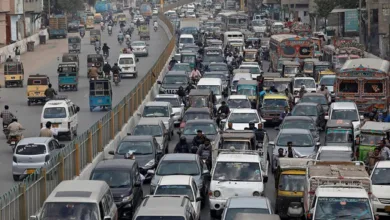Chinese developers, cities tempt homebuyers with perks like private-jet shares, residency

From private jets to permanent residency in major cities, cash-strapped developers in mainland China are offering increasingly aggressive incentives to attract homebuyers as efforts by central and local authorities to rescue the property market fall short.
This month, the Nanjing branch of the state-owned property developer, China Merchants Property, announced that purchasers in one of its projects would be eligible for perks including flight lessons and a 5 per cent stake in a private jet. The ploy followed an earlier advertisement claiming that buyers would be “gifted private jets”, which went viral on social media.
Meanwhile, a handful of cities across China, including major urban hubs such as Suzhou and Wuhan, have tried to entice buyers and stimulate demand by announcing that they would allow non-local homebuyers to apply for residency.
“Since the beginning of 2024, developers and local governments have been continuously introducing aggressive supportive policies,” said Xiaoxi Zhang, China finance analyst at Gavekal Dragonomics, a market research firm. “Due to price controls on new housing sales, developers cannot cut sales prices freely. So they offer more valuable incentives which serve as de facto discounts.”
As the housing market remains lacklustre, developers in second-tier cities are using more aggressive marketing tactics compared with their peers in third- and fourth-tier cities, as “there is not enough demand in those lower-tier cities to begin with”, said Yan Yuejin, vice-president at Shanghai-based E-house China Research and Development Institute.

Meanwhile, in first-tier cities like Beijing and Shanghai, developers tend to be more reserved in their promotional efforts, given that demand is more robust than elsewhere, he added.
Among China’s most expensive cities, Beijing home prices have declined the most, with August prices dropping 32 per cent year on year to 43,006 yuan per square metre through Wednesday, according to data compiled by E-house.
Per-square-metre prices declined 3 per cent to 12,015 yuan in Guangzhou and rose by 2 per cent to 65,746 yuan in Shenzhen, the southern metropolis bordering Hong Kong. Prices in Shanghai, an outlier in the mostly downward-trending property market, posted a 6 per cent increase to 75,568 yuan per square metre.
“Higher-tier cities with stronger economic fundamentals, better demographic prospects and potentially stronger local government financing may have more flexibility in rolling out new policies [to boost the property market],” said Tyran Kam, senior director of Asia-Pacific corporate ratings at Fitch Ratings.
“However, in the absence of more broad-based support policies from the central government, we believe home price pressure, including in the higher-tier cities, will likely persist in the near term.”
“Prices of new homes haven’t corrected as much as secondary housing,” said Gavekal’s Zhang. “And people are waiting for more discounts, especially when they have a less optimistic outlook on housing price gains. People also have concerns about housing deliveries due to presale problems. Developers are trying to sell more finished housing, but it will take time.”
Source link



